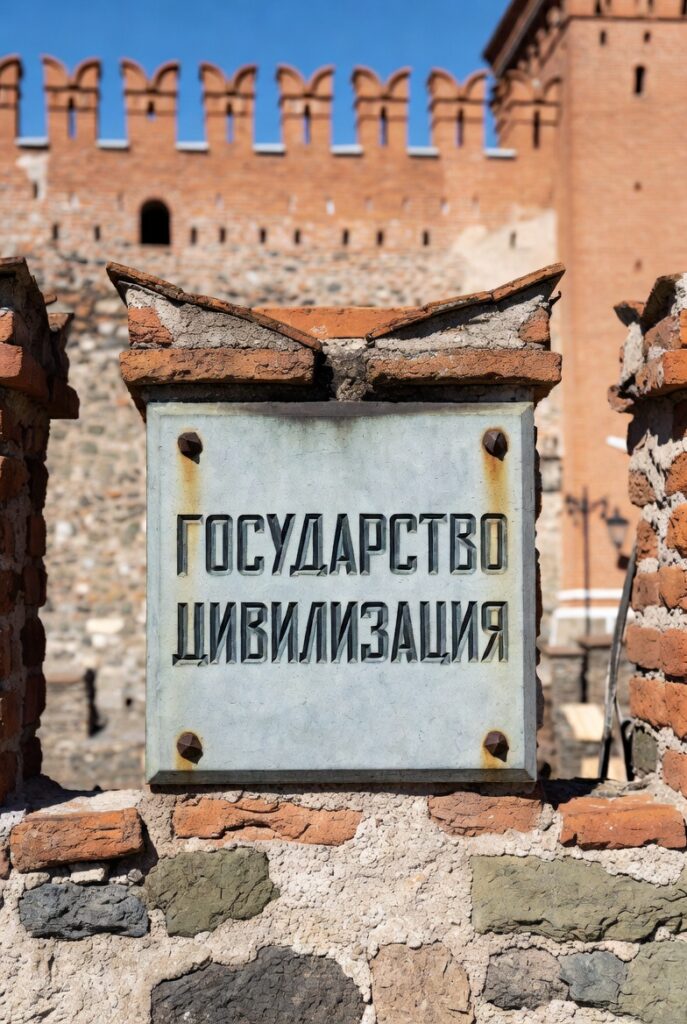Three Rosgvardiya (National Guard) officers from Chechnya, along with three «civilians», dragged blogger Areg Shchepikhin through the lobby of Moscow’s Yaroslavsky railway station before shoving him into the trunk of a black Mercedes equipped with flashing lights. Shchepikhin, shouting and demanding police intervention, drew attention to the incident, but to no avail. Footage of the abduction spread across popular Russian Telegram channels. The reason for the Chechen officers’ actions was Shchepikhin’s public insults targeting Chechen residents and Muslims in general, posted on his social media accounts.
Hours later, Shchepikhin was found in a suburban Moscow café where he was being held. Federal authorities opened criminal cases against both his abductors and Shchepikhin himself for inciting hatred. However, the detained Chechens were quickly released and posed for cameras, smiling and chanting the slogan «Akhmat Power!» These images sparked outrage among pro-war bloggers and public figures, such as United Russia MP and TV host Evgeny Popov. The story gained significant attention, making it difficult to sweep under the rug. Chechen leadership, including Rosgvardiya General Apti Alaudinov, continued to comment publicly on the matter.
The Telegram channel Mash, which disseminated the abduction footage, is loyal to the Kremlin and controlled by the Kovalchuk brothers’ National Media Group. This suggests that some elite factions deliberately amplified the story, despite its contradiction to the Kremlin’s narrative of Moscow as a safe city with order maintained by law enforcement. A daylight abduction in a bustling capital district undermines this image, fueling discontent even among ultrapatriots. The actions of Chechen operatives challenge the state’s monopoly on violence, threatening stability and established norms.
The signal from dissatisfied elites, amplified by pro-war bloggers, is clear: Chechen forces have overstepped, and order must be restored. Such behavior would be impossible without the approval of Chechnya’s leadership—Ramzan Kadyrov and his inner circle—indicating that elite factions publicizing the incident have grievances against Chechen authorities. The intended recipient of this message is Vladimir Putin, who receives Telegram channel monitoring reports. Elites understand that only the head of state can influence Kadyrov. The FSB and Interior Ministry have longstanding issues with Kadyrov, rooted in the Chechen wars when many security officials opposed rebels, including Kadyrov’s family in the 1990s. Civilian elites grew frustrated with Kadyrov after his interference in the Kremlin-sanctioned merger of the Wildberries marketplace with Russ Outdoor, which led to a deadly shootout involving Wildberries’ security guards. Kadyrov’s opponents realized his and his subordinates’ impunity could be leveraged against him, with such incidents broadcasted on popular Telegram channels. Kadyrov and his forces continue to provide regular fodder for controversy, seemingly embracing impunity as part of their public behavior and PR strategy.
Loyalty Isn’t Enough: New Rules for Russian Media
Searches and arrests of two Ura.ru journalists, a prominent Ural media outlet, became a major event this week. The employees were accused of purchasing information from police for news stories. Crime reporting, a reliable traffic driver, has long been a staple of Russian media. Media mogul Aram Gabrelyanov, creator of successful tabloids, openly admitted to buying information from law enforcement, medics, and emergency services. Ura.ru likely followed similar practices, and like Gabrelyanov’s outlets, it has long been loyal to the Kremlin and regional authorities. For instance, Ura.ru published favorable coverage of the new presidential envoy to the Ural Federal District, Artem Zhoga, and Sverdlovsk’s acting governor, Denis Pasler, while avoiding serious criticism of former governor Evgeny Kuivashev. Since the full-scale war began, Ura.ru has also supported the conflict, aligning with the Kremlin’s expectations.
However, adhering to the unwritten rules of media operation no longer guarantees protection. Law enforcement has grown wary of information leaks, even about routine crimes, as they could expose more sensitive data. The high-profile search at Ura.ru, conducted with sledgehammers, signals to other loyal tabloids that old methods are no longer acceptable. New unwritten rules prohibit purchasing information from individual security officials, requiring media to rely on curated leaks. Given the authorities’ reluctance to acknowledge Ukrainian drone attacks on strategic airfields, any unfiltered publication of such information alarms security leadership, making Ura.ru’s search plausible.
Another theory suggests the journalists suffered due to their ties to former Sverdlovsk governor Evgeny Kuivashev’s administration. Ura.ru’s owners, energy and utilities businessmen Artem Bikov and Alexey Bobrov, are linked to Moscow Mayor Sergei Sobyanin’s «Tyumen» team, which includes Kuivashev. The new regional leadership may see Ura.ru as an unwanted channel of Tyumen influence, prompting a crackdown under the pretext of illegal information purchases. Notably, Ura.ru published no criticism of acting governor Denis Pasler, portraying him as a patriotic war supporter backed by envoy Zhoga. If the searches were driven by regional authorities, it suggests that full loyalty is no longer enough—media must be fully controlled by affiliated owners. The motivations of security services and regional leadership may align, with both theories complementing each other.
The troubles of a highly loyal, pro-war regional outlet like Ura.ru indicate shifting rules for Russia’s media. Journalists must avoid initiating information purchases from security officials, even for routine crime stories, and rely on official leaks. Regionally, media must be fully subordinate, not just loyal, to local authorities. Other governors may follow this example, targeting relatively independent media owners, as the pretext of illegal information purchases can be applied to nearly any popular outlet. In a censored environment, crime news was a safe traffic source, but its reliability is now in question.










